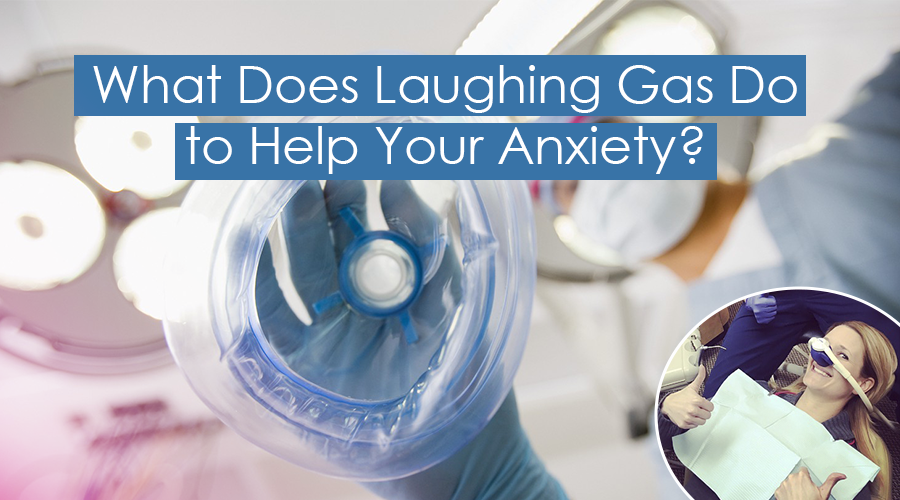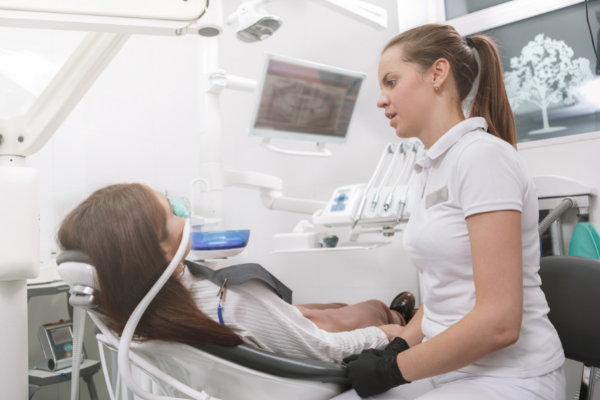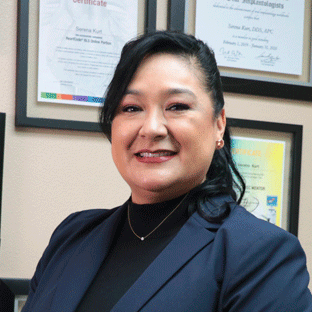Are you one of those people who get anxious just by thinking of going to the dentist?
If your answer to that question was an immediate “yes,” then laughing gas will probably interest you.
We no longer live in the past. Dentistry has advanced enough to help you get the care you need to have your oral health in shape and not having to worry about any fears.
When it comes to sedation dentistry, laughing gas is extremely necessary. There are just too many people out there who feel afraid of seeing a dentist.
Why?
Although it’s different for everybody, some of the reasons could be bad past dental experiences, first times, and even Hollywood movies or series.
Who hasn’t come across negative depictions of the dental office? Unfortunately, they’re very common, so, naturally, one person or two will develop some aberration to going to their dental appointments.
As a consequence, whatever problem the individual is dealing with usually gets worse. Imagine having cavities and not getting fillings for them?
You really can’t just expect them to disappear all of a sudden.
The earlier you seek treatment for an oral problem, the simpler and less expensive it is to correct it.
That’s why many dentists implement laughing gas in their offices, but what does it do exactly?
Stick around to find out.
What Is the Purpose of Laughing Gas?
This gas is a painless and safe sedation option that allows your dentist in Clairemont to function more efficiently, especially with children.
If you or your child has anxiety or has had a poor dental experience in the past, you might be hesitant to seek another operation.
As a result, laughing gas allows you to be completely unaware of your dentist’s behavior during your dental procedure.
Your dentist in Clairemont will be able to give you quality care and improve your oral health after you have inhaled laughing gas and start to become sleepy.
This anesthesia would almost certainly be used during dental procedures such as:
- Porcelain veneers
- Dental crowns
- Tooth fillings
- Dental implants
- Tooth extraction (e.g., wisdom tooth)
Laughing Gas Side Effects You Might Experience
Even though inhaling nitrous oxide can cause side effects, many people who receive the gas experience no adverse reactions or complications.
Within 20-30 seconds of inhalation, most patients will experience the effects, and within 3-5 minutes, they will be entirely comfortable.
The results will wear off in around 5 minutes after the dentist in Clairemont finishes the procedure and eventually turns the patient back to oxygen.
This means that, unlike most types of sedation, there is no drowsiness afterward. Most patients can drive themselves home (after being evaluated by the dentist, of course).
When side effects do occur, they’re often the result of inhaling too much gas or inhaling it too quickly.
- Tiredness
- Blurry vision
- Nausea
- Excessive sweating
- Sleepiness
- Headaches
Who Shouldn’t Use Laughing Gas?
Even though nitrous oxide is a safe and efficient sedative, it may not be the best option for you.
Using laughing gas has many risks, according to the AAPD. If you struggle with any of the conditions listed below, tell your dentist:
- In case you are in the first pregnancy trimester.
- If you have respiratory disease history such as chronic pulmonary obstructive disease.
- In case you have a deficiency of vitamin B-12.
- If you have a history of mental illness.
- You have a history of drug/alcohol dependence.
Although there are no proven long-term consequences of misusing nitrous oxide or long-term exposure to the gas in the workplace, there could be long-term consequences, like:
- Loss of memory
- Depression
- Immune system dysfunction
- Psychosis
- Numbness in your hands and feet
- Incontinence
Another danger of laughing gas, like many other recreational substances, is that it impairs balance.
If you use nitrous oxide in a position where you might slip and injure yourself or others, this can be harmful.
Attempting to drive or run equipment when under the influence of laughing gas is also extremely risky.
Alternatives to Laughing Gas
Stop going to the dentist because you’re afraid of the pain is not an option anymore.
Besides laughing gas, various drugs and strategies can minimize pain and anxiety during most procedures, whether used alone or in combination.
Local Anesthetics
Local anesthetics, such as Novocain, are the quickest acting, mildest, and the closest thing to a topical treatment available in the field of dental surgery.
A numbing chemical will be pumped into your gumline around your teeth in a small amount. The region will become totally numb in a matter of minutes, suppressing all pain signals and sensations.
Conscious Sedation
The overwhelming joy of conscious sedation options is that they are available as an oral drug that you can take only before your surgery.
This medication will make you feel “out of it,” as though you are in a dreamlike state.
This is particularly good for those who have severe dental phobias and anxieties but don’t want to be ultimately “knocked out.”
Intravenous sedation
IV sedation solutions are almost exclusively used to treat people with dental fears and phobias because they function rapidly and provide comparable outcomes to conscious sedation.
Both types of solutions are typically used in conjunction with local anesthetics to treat pain, while the IV sedation solution treats anxiety.
General Anesthesia
Most people equate general anesthesia with conventional surgical procedures; it helps you to drift off for the duration of your oral surgery.
You’ll sleep through the procedure with no pain, no discomfort, and certainly no anxiety, and you’ll wake up without being able to remember what happened.
Conclusion
It was never so easy to visit the dentist and get the dental treatments you need. Laughing gas is safe, but you do have to consider the side effects.
Before undergoing any operation, speak with your dentist and provide them with your medical history. They will decide if you’re a candidate for this type of sedation based on your current health.
To get more information on how to have your dental treatments with this option, contact Serena Family & Cosmetic Dentistry. Dr. Serena Kurt is a skilled and experienced dentist in Clairemont that can help you have the dental experience you deserve.




Leave a Reply